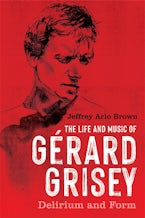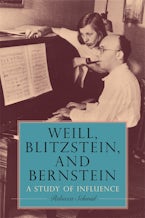![Schubert in the European Imagination [2 volume set]](https://boydell-brewer-uk.imgix.net/missing-cover.png)
Title Details
680 Pages
22.8 x 15.2 cm
Series: Eastman Studies in Music
Series Vol. Number:
42
Imprint: University of Rochester Press
Schubert in the European Imagination [2 volume set]
2-volume set
- Description
In Schubert in the European Imagination, Volume 1: The Romantic and Victorian Eras, Scott Messing examines the historical reception of Franz Schubert as conveyed through the gendered imagery and language of nineteenth- and early twentieth-century European culture.
The concept of Schubert as a feminine type vaulted into prominence in 1838 when Robert Schumann described the composer's Mädchencharakter ["girlish" character], by contrast to the purportedly more masculine, more heroic Beethoven. What attracted Schumann to Schubert's music and marked it as feminine is evident in some of Schumann's own works that echo those of Schubert's in intriguing ways.
Volume 2, Schubert in the European Imagination: Fin-de-Siècle Vienna examines the composer's historical and cultural reception by Viennese modernists. By 1900, issues of gender had crossed with those of nationalism, especially in the city that came to consider Schubert as its favorite musical son. As Messing here explains and explores in rich detail, composers, writers, and visual artists manipulated the conventions of the composer and gender in ways that critiqued the very culture that had created this image.
Scott Messing is Charles A. Dana Professor of Music at Alma College, and author of Neoclassicism in Music (University of Rochester Press, 1996).
The concept of Schubert as a feminine type vaulted into prominence in 1838 when Robert Schumann described the composer's Mädchencharakter ["girlish" character], by contrast to the purportedly more masculine, more heroic Beethoven. What attracted Schumann to Schubert's music and marked it as feminine is evident in some of Schumann's own works that echo those of Schubert's in intriguing ways.
Volume 2, Schubert in the European Imagination: Fin-de-Siècle Vienna examines the composer's historical and cultural reception by Viennese modernists. By 1900, issues of gender had crossed with those of nationalism, especially in the city that came to consider Schubert as its favorite musical son. As Messing here explains and explores in rich detail, composers, writers, and visual artists manipulated the conventions of the composer and gender in ways that critiqued the very culture that had created this image.
Scott Messing is Charles A. Dana Professor of Music at Alma College, and author of Neoclassicism in Music (University of Rochester Press, 1996).
Multiple-item retail product
9781580463782
April 2007
£145.00 / $175.00
Title Details
680 Pages
2.28 x 1.52 cm
Series: Eastman Studies in Music
Series Vol. Number:
42
Imprint: University of Rochester Press















